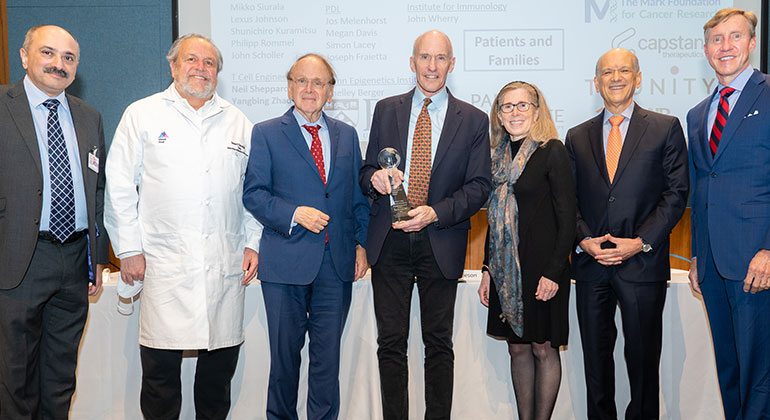Hepatitis C Found to be Transmitted by Unprotected Sex Between HIV-Infected Men
Men with HIV who have sex with other men are at increased risk for contracting HCV through sex.
Sexual transmission of hepatitis C virus (HCV) is considered rare. But a new study by researchers at Mount Sinai School of Medicine, working with the Centers for Disease Control and Prevention (CDC), provides substantial evidence that men with HIV who have sex with other men (MSM) are at increased risk for contracting HCV through sex.
The results of the study are published in today’s edition of the CDC’s Morbidity and Mortality Weekly Report.
HCV transmission primarily occurs through exposure to blood, and persons who inject drugs at greatest risk. But when Mount Sinai researchers observed a large increase in the number of new cases of HCV transmission among HIV-infected men who did not inject drugs, they took a closer look to examine the role of sexual transmission among these men.
The researchers identified 74 HIV-infected men between October 2005 and December 2010 who had documented new HCV infection and yet reported no other risk factor for HCV infection, including injection drug use. When they compared 22 of these men with a control group of 53 closely matched HIV-infected MSM who did not have HCV infection, they found that the men who had recently contracted HCV were 23 times more likely to have had unprotected anal sex with men. In addition, HCV genetic analysis suggested that HCV was transmitted within social networks of these men, consistent with the presence of a city-wide epidemic.
"While hepatitis C is rarely transmitted among stable heterosexual couples, this is clearly not the case among HIV-infected MSM in New York City," said Dr. Daniel Fierer, Assistant Professor of Medicine and Infectious Diseases at Mount Sinai School of Medicine. "MSM, and to some extent their health care providers are generally not aware that having unprotected receptive sex can result in HCV infection. The good news is that the cure rate for new HCV infections is very high with early treatment, but without regular testing of the men at risk, these largely asymptomatic infections may be missed and this opportunity lost."
"Our study suggests that HIV-infected MSM should take steps to protect themselves and others by using condoms. Also, health care providers should be screening these men for hepatitis C, and public education and outreach programs should include information about these risks," Dr. Fierer concluded.
About The Mount Sinai Medical Center
The Mount Sinai Medical Center encompasses both The Mount Sinai Hospital and Mount Sinai School of Medicine. Established in 1968, Mount Sinai School of Medicine is one of the leading medical schools in the United States. The Medical School is noted for innovation in education, biomedical research, clinical care delivery, and local and global community service. It has more than 3,400 faculty in 32 departments and 14 research institutes, and ranks among the top 20 medical schools both in National Institutes of Health (NIH) funding and by U.S. News & World Report.
The Mount Sinai Hospital, founded in 1852, is a 1,171-bed tertiary- and quaternary-care teaching facility and one of the nation’s oldest, largest and most-respected voluntary hospitals. In 2011, U.S. News & World Report ranked The Mount Sinai Hospital 16th on its elite Honor Roll of the nation’s top hospitals based on reputation, safety, and other patient-care factors. Of the top 20 hospitals in the United States, Mount Sinai is one of 12 integrated academic medical centers whose medical school ranks among the top 20 in NIH funding and U.S. News & World Report and whose hospital is on the U.S. News & World Report Honor Roll. Nearly 60,000 people were treated at Mount Sinai as inpatients last year, and approximately 560,000 outpatient visits took place.
For more information, visit http://www.mountsinai.org/.
Find Mount Sinai on:
Facebook: http://www.facebook.com/mountsinainyc
Twitter @mountsinainyc
YouTube: http://www.youtube.com/mountsinainy
About the Mount Sinai Health System
Mount Sinai Health System is one of the largest academic medical systems in the New York metro area, with 48,000 employees working across seven hospitals, more than 400 outpatient practices, more than 600 research and clinical labs, a school of nursing, and a leading school of medicine and graduate education. Mount Sinai advances health for all people, everywhere, by taking on the most complex health care challenges of our time—discovering and applying new scientific learning and knowledge; developing safer, more effective treatments; educating the next generation of medical leaders and innovators; and supporting local communities by delivering high-quality care to all who need it.
Through the integration of its hospitals, labs, and schools, Mount Sinai offers comprehensive health care solutions from birth through geriatrics, leveraging innovative approaches such as artificial intelligence and informatics while keeping patients’ medical and emotional needs at the center of all treatment. The Health System includes approximately 9,000 primary and specialty care physicians and 11 free-standing joint-venture centers throughout the five boroughs of New York City, Westchester, Long Island, and Florida. Hospitals within the System are consistently ranked by Newsweek’s® “The World’s Best Smart Hospitals, Best in State Hospitals, World Best Hospitals and Best Specialty Hospitals” and by U.S. News & World Report's® “Best Hospitals” and “Best Children’s Hospitals.” The Mount Sinai Hospital is on the U.S. News & World Report® “Best Hospitals” Honor Roll for 2024-2025.
For more information, visit https://www.mountsinai.org or find Mount Sinai on Facebook, Instagram, LinkedIn, X, and YouTube.

Researchers Identify Potential Target for Treatment Among Patients With Type 2 Diabetes
Aug 04, 2022 View All Press Releases
Mount Sinai Researcher Receives Prestigious International Award
Jul 06, 2022 View All Press Releases



